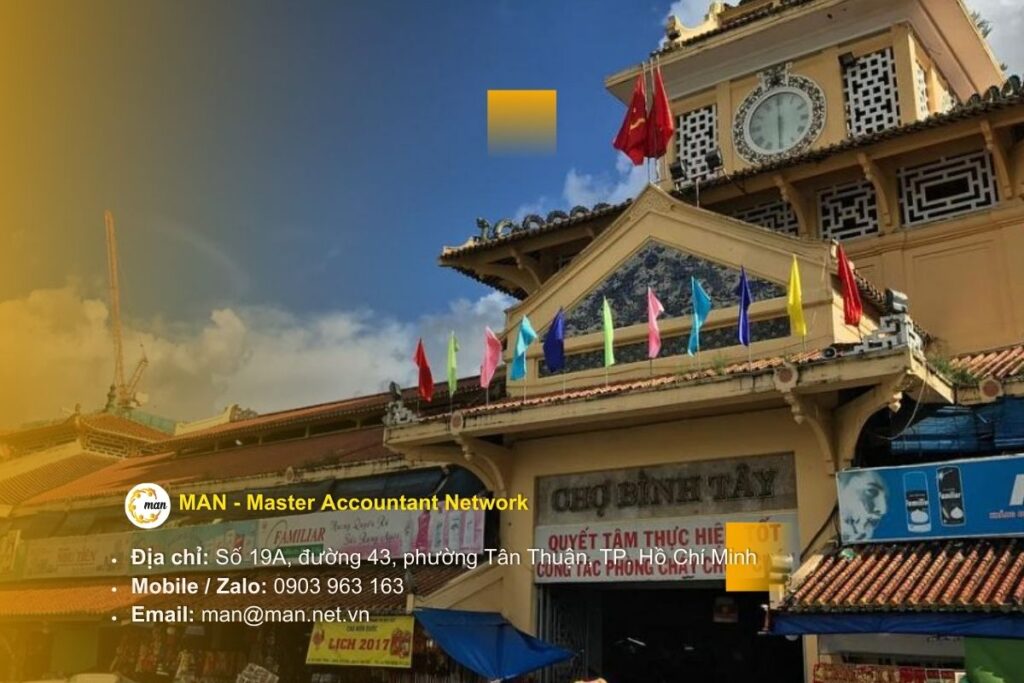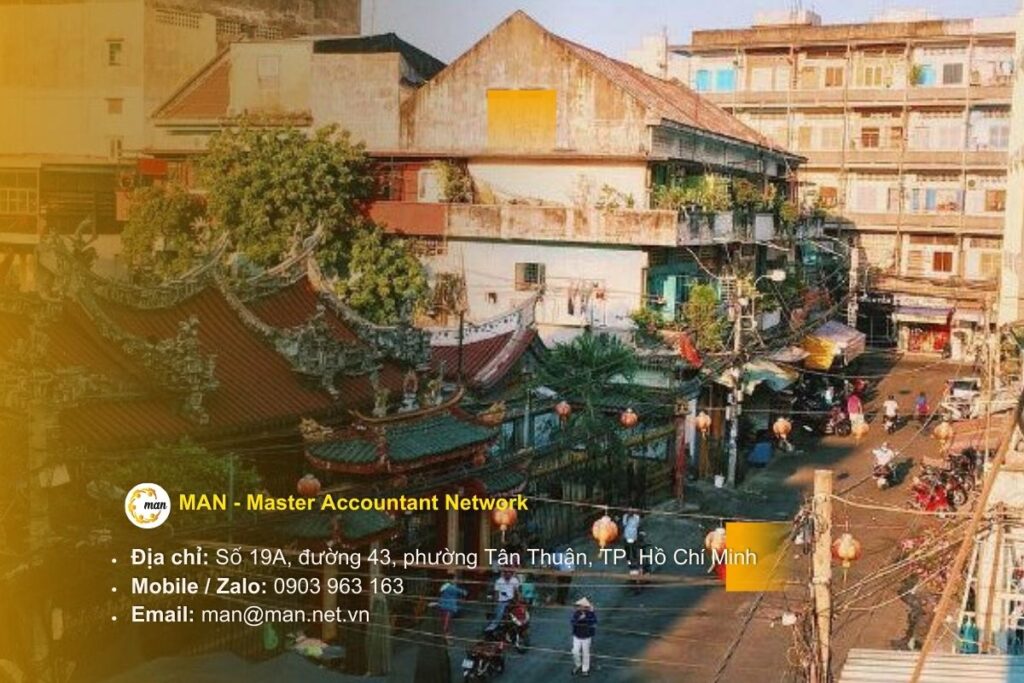Loan guarantee regulations become a key factor to ensure legal safety and financial transparency. Loan guarantee regulations not only help businesses improve their credit reputation and access capital with better conditions, but are also associated with the obligation to declare and prepare documents according to Decree 132/2020/ND-CP and new texts such as Decree 20/2025/ND-CP.
Understanding the legal framework, how to determine guarantee fees in accordance with market principles and preparing complete transaction documents will help businesses reduce tax risks, protect reputation and optimize long-term financial strategies.
Overview of loan guarantee regulations
In the process of raising capital, many businesses, especially subsidiaries or newly established units, often have difficulty accessing bank loans due to limitations in financial capacity or credit history. At this time, loan guarantees become an important regulation, when a third party, which can be the parent company, an affiliated company or a credit institution, commits to paying on behalf of the borrower if risks arise. This helps businesses get approved for loans more easily, with higher limits, lower interest rates and more flexible conditions..
According to the loan guarantee regulations in Decree 132/2020/ND-CP and updated documents such as Decree 20/2025/ND-CP, when a guarantee transaction arises between related parties, this is considered an affiliated transaction and must be declared and explained transparently.
In order for businesses to easily visualize and correctly apply legal regulations, it is necessary to summarize the main points of loan guarantee regulations. Loan guarantee regulations are an important basis for businesses to both comply with regulations and effectively manage financial activities related to loan guarantees. Let's find out with MAN - Master Accountant Network through the following summary table.
Board: Summary of key points on loan guarantee regulations
| Content | Main regulations | Legal basis | Note |
| Loan guarantee concept | Commitment of a third party (parent company, affiliate, bank...) to pay on behalf of the borrower when the borrower fails to fulfill its obligations. | Civil Code 2015 and Decree 132/2020/ND-CP | There must be a guarantee contract, clearly stating legal responsibility. |
| When is it an affiliate transaction? | Guarantees arising between related parties (parent - subsidiary, companies in the same group). | Decree 132/2020/ND-CP, Decree 20/2025/ND-CP | Right declared in the related transaction records. |
| Guarantee costs | Determined on a market basis. The guarantee fee should be compared with the fee of a similar independent transaction. | Decree 132/2020/ND-CP; OECD guidelines | Do not count 0% or free without proof. |
| Documents to prepare | Guarantee contracts; credit risk analysis reports; comparative guarantee premium data; disclosures in financial statements. | Decree 132/2020/ND-CP, Vietnamese accounting standards. | Records must be kept for a minimum of 10 years. |
| Declaration obligation | Enterprises must declare guarantee transactions in Appendix I, II, III attached to the corporate income tax finalization declaration. | Decree 132/2020/ND-CP | Failure to declare may result in administrative penalties and tax assessments. |
| Risk of violation | The cost of the guarantee is excluded, and tax arrears, late payment penalties and administrative fines are collected. | Law on Tax Administration, Decree 125/2020/ND-CP | Impact on reputation and financial reporting. |
Loan guarantees in corporate finance activities are both an important capital support tool and a field that is strictly regulated by tax and accounting laws. Understanding the loan guarantee regulations not only helps businesses take advantage of financial advantages but also ensures legal safety, transparent reporting and maintains long-term reputation.
The Importance of Loan Guarantee Compliance
According to the loan guarantee regulations in Decree 132/2020/ND-CP and new documents such as Decree 20/2025/ND-CP, when a guarantee arises between related parties, this transaction will be considered an affiliated transaction and must be fully declared and documented.

Loan guarantee regulations not only help businesses avoid tax and legal risks, but also create a transparent financial management foundation. Determining guarantee fees according to the market principle (arm's-length principle), keeping supporting records and publicizing them in financial statements helps businesses strengthen their creditworthiness, while improving their resilience to tax inspections. Especially in the context of tax authorities strengthening control over related-party transactions and corporate tax management.
According to Decree 132/2020/ND-CP and Decree 20/2025/ND-CP, loan guarantees between related parties are considered related party transactions and must be fully declared and documented. Compliance with loan guarantee regulations brings many important benefits, specifically:
- Avoid tax and legal risks: Reduce the risk of penalties due to under- or incorrect declarations.
- Ensuring transparent financial management: Guarantee fees are determined according to the market principle (arm's-length principle), with clear evidence.
- Strengthening credit reputation: Transparent records help businesses be more highly regarded in the eyes of financial institutions and partners.
- Increase resilience to tax audits: Standard records help businesses minimize risks when tax authorities audit.
In line with current tax management trends: As tax authorities increasingly tighten control over related transactions.
Current legal framework on loan guarantee regulations
According to Decree 132/2020/ND-CP, one of the important contents related to loan guarantee regulations is determining this as a form of affiliate transactionsSpecifically, when enterprises in the same group or related parties implement regulations on loan guarantees for each other in the process of borrowing from banks or mobilizing finance, this transaction is no longer considered as purely internal support, but is regulated according to the tax management mechanism for related-party transactions.
The Decree requires enterprises to fully disclose information about loan guarantees, including the contract, the scope of the guarantee obligation, as well as the guarantee fee incurred. This fee must be determined according to the market price principle (arm's-length principle), that is, similar to the fee that the enterprise may have to pay to an independent party under similar conditions. In addition, the regulation also requires enterprises to establish and maintain transfer pricing records, in which the reasonableness of the guarantee fee, comparative data and impact on financial costs are analyzed.

In particular, the loan guarantee provisions in Decree 132/2020/ND-CP are also associated with the mechanism to control interest expenses, when the total interest expense after deducting income from deposit interest and loan interest is only calculated at a maximum of 30% EBITDA. This means that even if a business has a guarantee to borrow capital more conveniently, the financial costs incurred are still limited, in order to prevent the act of taking advantage of related-party transactions to transfer profits or avoid taxes.
If a business fails to comply with the regulations, the tax authority has the right to exclude the guarantee cost from deductible expenses, determine taxable income, and impose penalties and collect taxes. On the contrary, full compliance with Decree 132/2020/ND-CP will help businesses better manage legal risks, maintain transparency in financial management, and strengthen creditworthiness when accessing capital from banks and financial institutions.
Example: Company A is a subsidiary in Vietnam of a multinational corporation. In 2023, the company needs to borrow VND500 billion from a commercial bank to expand its factory. However, the bank requires a guarantee from the parent company abroad to ensure its ability to repay the loan.
- Step 1: Identify the affiliate transaction
When the parent company guarantees, this is considered an affiliated transaction according to the provisions of Decree 132/2020/ND-CP. Enterprise A must declare details in the affiliated transaction declaration and prepare a price determination dossier.
- Step 2: Determine loan guarantee fee
Company A conducts a comparative analysis with the market and determines a reasonable guarantee fee of 1%/year on the loan balance, similar to the level commonly applied by banks and independent credit institutions.
- Step 3: Create and keep records
The dossier includes the guarantee contract, the arm's-length principle method of determining fees, a report analyzing risks and the impact on financial costs.
- Step 4: Comply with regulations on interest costs
Total interest expense plus guarantee fee is compared with the 30% EBITDA ceiling under Decree 132 to ensure that it does not exceed the limit.
- Result
When the tax authority conducted an inspection, Company A proved that it fully complied with loan guarantee regulations, had transparent records, and guaranteed fees in line with the market. Therefore, the entire guarantee cost was accepted as a reasonable and valid cost, helping the company save taxes and strengthen its reputation with the bank.
Source: Decree 132/2020/ND-CP on regulations on loan interest protection
Comparison between 2 Decrees on loan guarantee regulations
To help businesses easily visualize the changes in policy, especially points related to loan guarantee regulations in related-party transactions, let's look at the detailed comparison table between Decree 132/2020/ND-CP and Decree 20/2025/ND-CP on loan guarantee regulations below:
| Criteria | Decree 132/2020/ND-CP | Decree 20/2025/ND-CP | New and Impact |
| Loan guarantee concept | Determining guarantees arising between related parties is a related party transaction that must be declared and documented. | Maintain the definition, but expand the scope of application to include indirect forms of guarantees (e.g. guarantees through subsidiaries, joint ventures). | Businesses need to review hidden guarantees to avoid missing declarations. |
| Loan guarantee fee | Requirements are determined on the arm's-length principle. | Add more specific guidance on how to determine guarantee fees based on comparative data from banks and independent credit institutions | Reduce the risk of having expenses rejected by tax authorities due to lack of valuation basis. |
| Deductible expenses | Total interest expense (including guarantee fees) is capped at 30% EBITDA. | Cost control ratios can be adjusted for each industry or sector with large borrowing characteristics (for example, infrastructure, energy). | Some businesses with high debt capital benefit from the loosening of the ceiling. |
| Affiliate Transaction Profile | Enterprises must establish and keep guarantee contracts, fee calculation methods, and related documents. | Requires additional credit risk analysis and demonstration of the economic role of the guarantee. | The records must be more detailed, which increases transparency but also increases the workload of accounting and tax. |
| Penalty for violations | Enterprises that do not declare or declare incorrectly may have their expenses excluded, their income determined, and their taxes collected. | In addition to administrative sanctions, stronger measures should be added, such as publicizing violations in tax reports. | Businesses are under more pressure and need to comply closely. |
Through the comparison table, it can be seen that Decree 20/2025/ND-CP does not change the nature of loan guarantee regulations, but tightens transparency, adds detailed instructions and increases sanctions. This forces businesses with related-party transactions to proactively prepare thorough records, control guarantee costs according to the market, and at the same time adhere to legal compliance.
Legal and tax risks if loan guarantee regulations are violated
In corporate finance activities, compliance with loan guarantee regulations is mandatory, because if violated, businesses may face many serious legal and tax risks:

- Exclude underwriting costs from deductible expenses: If the guarantee fee is not determined on a market basis or there is no adequate supporting documentation, the tax authority has the right to exclude this expense from the reasonable expenses, increasing taxable income.
- Tax assessment and collection: In case an enterprise fails to declare or incorrectly declares related transactions related to guarantees, the tax authority may apply tax assessment measures and simultaneously collect the outstanding tax amount along with late payment fees.
- Administrative sanctions: According to Decree 125/2020/ND-CP on administrative sanctions for tax violations, violations of declaration, late submission of documents or failure to comply with obligations related to loan guarantee regulations may be subject to fines, or even heavier penalties if there are signs of tax evasion.
- Impact on reputation and creditworthiness: Violations of regulations not only affect tax obligations, but also affect financial transparency, cause loss of reputation with banks and investors, and reduce access to capital in the future.
- Risk of in-depth inspection and testing: Enterprises that violate the law are easily classified by tax authorities as high-risk, and are therefore subject to closer and more frequent supervision during tax inspections, directly affecting business operations.
In short, non-compliance with loan guarantee regulations means that businesses put themselves in a spiral of legal and tax risks, increasing financial costs, destabilizing governance and possibly having long-term impacts on sustainable development.
Loan guarantees are not only a legal requirement, but also closely linked to the financial management and tax strategy of enterprises. Full compliance will help enterprises optimize legal costs, maintain transparency and protect reputation in the context of tax authorities increasingly tightening the management of related-party transactions.
Conclude
Loan guarantee regulations not only help businesses avoid legal and tax risks, but also serve as a foundation for building a transparent financial management system, strengthening credit reputation and enhancing competitiveness. In the context of tax authorities increasing supervision of related-party transactions and internal financial activities of the group, businesses need to proactively review, prepare complete records and apply market principles to protect their legitimate rights.
Whether it's loan guarantees, reporting related party transactions or optimizing tax strategies, Contact MAN – Master Accountant Network now Leading consulting firm in the field of tax management and related party transactions. MAN – Master Accountant Network is committed to accompanying, providing professional, transparent and effective solutions, helping businesses develop sustainably.
Contact information MAN – Master Accountant Network
- Address: No. 19A, Street 43, Tan Thuan Ward, Ho Chi Minh City
- Mobile / Zalo: 0903 963 163 – 0903 428 622
- E-mail: man@man.net.vn
Editorial Board: MAN – Master Accountant Network




